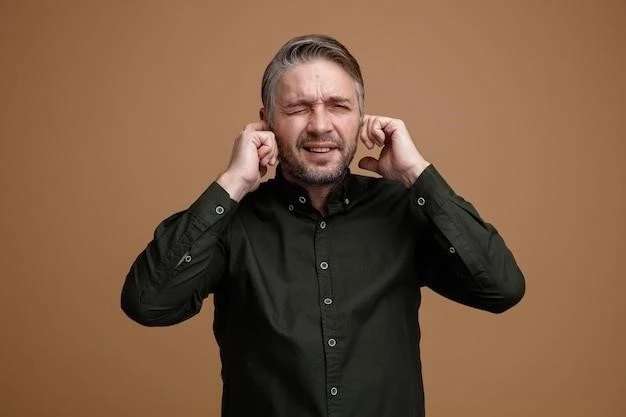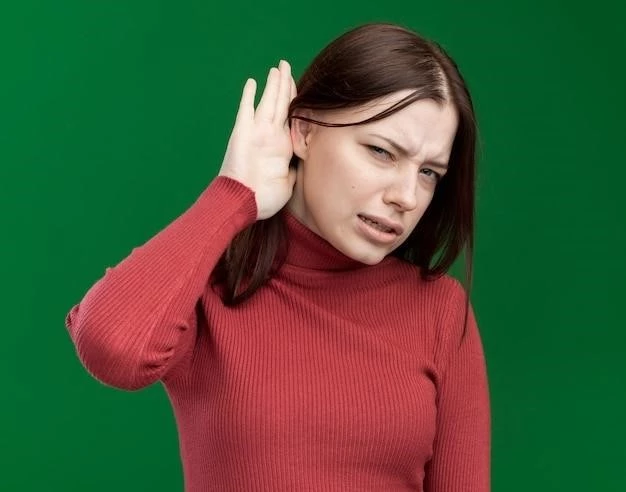Article Plan⁚ Disease ─ Noise-Induced Hearing Loss
Overview of Noise-Induced Hearing Loss
Noise-Induced Hearing Loss (NIHL) can result from exposure to loud sounds over time, affecting people of all ages. It is crucial to recognize the signs early to prevent permanent damage. Common symptoms include muffled hearing, difficulty understanding speech, and ringing in the ears. Taking preventative measures, such as reducing exposure to loud noise, can help safeguard your hearing health.
Causes and Risk Factors
Noise-Induced Hearing Loss (NIHL) can occur from exposure to loud sounds like machinery, music, or gunfire. Factors like industrial workplaces, construction sites, or frequent use of headphones can increase risk. Understanding the causes and taking precautions, such as using hearing protection devices, can help prevent NIHL. It’s essential to prioritize hearing health in noisy environments.
Symptoms of Noise-Induced Hearing Loss
The symptoms of Noise-Induced Hearing Loss (NIHL) may include muffled hearing, difficulty understanding speech, and ringing in the ears. Temporary symptoms like dizziness, pain in the ear, or trouble hearing high-pitched sounds may also occur after exposure to loud noise. Seeking medical attention for sudden hearing loss is crucial to prevent further complications.
Diagnosis and Testing
Diagnosis of Noise-Induced Hearing Loss (NIHL) typically involves a thorough medical history, audiometric testing, and physical examination. An audiologist or an Ear, Nose, and Throat (ENT) specialist may conduct tests to assess hearing levels and identify any hearing loss. It’s essential to seek professional help if you suspect any hearing difficulties due to exposure to loud noise.
Prevention Strategies
Preventing Noise-Induced Hearing Loss (NIHL) involves understanding that exposure to loud sounds can lead to long-term hearing damage. Measures such as avoiding excessively loud environments, using ear protection, and monitoring volume levels on personal devices can help safeguard your hearing health. Regular hearing check-ups and awareness of potential hazards can contribute to preventing NIHL.
Impact of Loud Noise on Hearing
Loud noise exposure can have detrimental effects on hearing, leading to Noise-Induced Hearing Loss (NIHL). This type of hearing loss is often irreversible and results from the destruction of delicate hair cells in the inner ear. Understanding how loud sounds can damage your hearing over time is essential for taking preventive measures and safeguarding your auditory health.

Occupational Noise-Induced Hearing Loss
Occupational Noise-Induced Hearing Loss (ONIHL) is a significant concern, especially in industries with high noise levels like mining. Factors such as confined workspaces and the use of noisy equipment contribute to ONIHL. Awareness of occupational hazards and adherence to safety measures, including proper ear protection, are crucial in preventing ONIHL among workers.
Treatment Options
While Noise-Induced Hearing Loss (NIHL) is often irreversible, there are interventions to manage symptoms and improve quality of life for individuals affected. Treatment options may include hearing aids, cochlear implants, assistive listening devices, and auditory training. Seeking guidance from an audiologist or ENT specialist can help determine the most suitable treatment plan based on the severity of the hearing loss.
Complications of Untreated Noise-Induced Hearing Loss

Untreated Noise-Induced Hearing Loss (NIHL) can lead to various complications, including communication difficulties, social withdrawal, depression, and cognitive impairment. Prolonged exposure to loud noise without intervention may result in irreversible damage to delicate inner ear structures, impacting overall quality of life. Seeking timely assessment and management is crucial to prevent long-term repercussions.
Research and Recent Discoveries
Ongoing research into Noise-Induced Hearing Loss (NIHL) focuses on understanding the mechanisms of hearing damage caused by loud noise exposure and exploring innovative treatment options. Recent discoveries highlight the role of zinc in cellular function related to hearing and the potential for interventions to mitigate noise-induced hearing damage. Stay informed about the latest advancements in NIHL research to protect your hearing health.
Resources and Support for Individuals with Hearing Loss
For individuals experiencing hearing loss, various resources and support systems are available to help manage the condition. Seeking guidance from audiologists, ENT specialists, and organizations specializing in hearing health can provide valuable assistance. Additionally, utilizing hearing aids, assistive devices, and support groups can enhance coping strategies and improve quality of life alongside hearing impairment. Staying informed about advancements in hearing technology can also aid in better hearing management.
